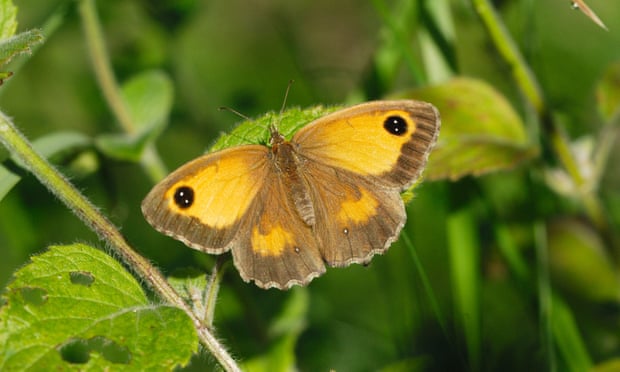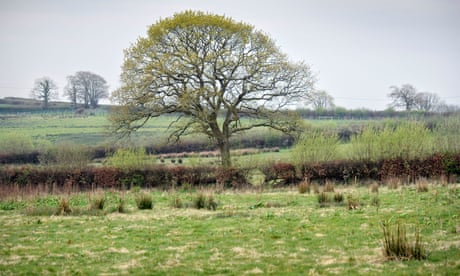Results of 10-year project reveal that rewilding areas can boost biodiversity and crop yields

Putting farmland aside for nature does not have a negative effect on food security, a study has found.
A 10-year project by the UK Centre for Ecology and Hydrology revealed that nature-friendly farming methods boost biodiversity without reducing average yields.
Scientists spent a decade intensively monitoring the impacts of a large government-funded experiment at Hillesden, a 1,000-hectare commercial arable farm in Buckinghamshire. Beginning in 2005, this involved creating several wildlife habitats, including seed-bearing plants for birds, wildflowers for pollinators and tussocky grass margins to support a range of birds, insects and small mammals.
In the longest-running study of its kind, researchers succeeded in boosting numbers of wildlife essential for agricultural production such as pollinators and predators of crop pests. Numbers of some butterfly species including the gatekeeper and green-veined white doubled, and birds that usually feed on insects benefited from the shelter provided by hedges and grass margins, including the great tit, up 88%, and blue tit, up 73%.

They also found that overall yields at Hillesden were maintained – and enhanced for some crops – despite the loss of agricultural land for habitat creation. The areas taken out of production were difficult and unproductive to farm, and the other areas benefited from boosted pollinator numbers and pest-eating birds and insects.
This runs contrary to claims made by many politicians that new post-Brexit agri-environment schemes would be “paying farmers to produce less food” and would damage food security. Rishi Sunak, the former chancellor currently running to be prime minister, recently said he would “protect” farmers from rewilding their land for nature.
Jake Fiennes, the head of conservation at the Holkham estate in Norfolk and author of nature-friendly farming book Land Healer, said he was unsurprised by the results of the report.
He told the Guardian: “Historic policies in England tried to get us to produce food everywhere. But now we are realizing that we can increase our average yield by stopping growing food in areas of land that aren’t productive, and in these areas we can make space for nature. We know there are benefits from having more nature in the farm, we know we can improve farm biodiversity without affecting yields.
Fiennes said: “Take a field. If on the southern edge of that field you have a woodland, invariably the first 15 to 20 metres of that edge won’t produce the average yield, it’ll produce anything up to 50% of average. But when you have all the species that would benefit from that edge of woodland, it’s a no-brainer to give it to nature. This is the poorest land for food production, and when you are not focusing on that area you increase your average yield in the rest of the field.
“We know we have a biodiversity crisis, we know we have a climate crisis, we know the two are linked, and this is an opportunity to increase our yields as well as providing for nature.”
Dr. John Redhead of the UK Centre for Ecology & Hydrology and lead author of the research published in the Journal of Applied Ecology, said: “Investigating changes in populations over a significant period of time, and comparing these with other sites, means we can be confident that agri-environment options can bring long-term term benefits for bird and butterfly populations.
“Hillesden is a typical, large arable farm with conventional agricultural practices, in an ordinary landscape with no large patches of natural habitat. Therefore, it is likely that the results of our long-term study indicate what can be achieved on other commercial farms with good planning, implementation and management of agri-environment measures.”


